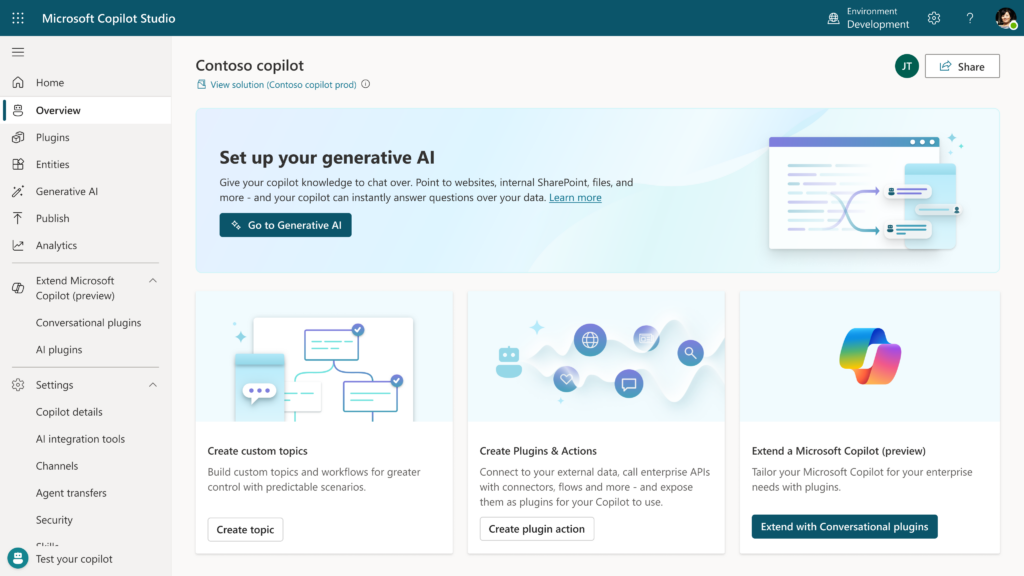Copilot Studio Helps Business Master AI Agents
AI, AI agent, Copilot
Microsoft’s Copilot Studio emerges as a groundbreaking platform that empowers organizations to develop intelligent digital assistants capable of transforming complex workflows into streamlined, intelligent processes.
The Emerging Landscape of AI Agents
Modern enterprises are rapidly recognizing that AI agents represent more than just technological innovation—they are strategic assets that can fundamentally reshape business performance. However, unlike traditional software solutions, these intelligent systems can learn, adapt, and provide contextually relevant support across multiple organizational functions.
Microsoft’s research indicates that 60% of Fortune 500 companies are now leveraging Microsoft 365 Copilot to accelerate business outcomes. Companies like Lumen Technologies project $50 million in annual savings through intelligent agent implementation, while Honeywell has equated their productivity gains to adding nearly 200 full-time employees. At the forefront of this revolution is Microsoft’s Copilot Studio, a powerful platform designed to facilitate the development and deployment of AI agents.
Understanding Copilot Studio’s Capabilities
Copilot Studio represents a sophisticated development environment designed to democratize AI agent creation. The platform enables organizations to design, deploy, and manage intelligent agents with unprecedented ease. By providing intuitive tools and seamless integration with Microsoft 365 ecosystem, it transforms complex AI development into an accessible strategic initiative.
Strategic Development of AI Agents
Developing an effective AI agent requires a methodical approach. Organizations must first precisely define the agent’s purpose, identifying specific triggers and desired outcomes. This involves mapping organizational workflows, understanding interaction patterns, and establishing clear performance metrics.
The development process encompasses several critical stages. Initially, developers use natural language prompts and sophisticated templates to define the agent’s behavioral parameters. Subsequently, they integrate diverse data sources, including Dataverse tables, SharePoint libraries, and enterprise databases, to enhance the agent’s knowledge and contextual understanding.
Best Practices in AI Agent Implementation
Successful AI agent deployment demands a comprehensive strategy. Performance optimization requires continuous profiling, algorithmic refinement, and strategic hardware acceleration. Moreover, maintaining high-quality, meticulously structured data remains paramount for ensuring accurate and reliable agent performance.
Memory management represents another crucial consideration. Implementing sophisticated short-term and long-term memory strategies allows agents to maintain contextual awareness and deliver more personalized interactions. Advanced implementations might incorporate vector databases to support persistent knowledge retention.
Real-World Transformation Insights
Microsoft’s internal case studies demonstrate the transformative potential of AI agents. Their sales teams experienced 9.4% revenue increases and improved deal closure rates. Customer support functions witnessed 12% faster resolution times, while marketing teams achieved a 21.5% conversion rate improvement through targeted AI-powered interactions.
Navigating Implementation Challenges
While AI agents offer tremendous potential, organizations must carefully address implementation challenges. Data privacy, employee training, and ethical considerations require strategic planning. Successful deployment demands a holistic approach that balances technological capability with organizational culture.
Future Technological Trajectory
The evolution of AI agents continues to accelerate. Emerging developments suggest increasingly sophisticated natural language processing, enhanced emotional intelligence, and greater autonomous decision-making capabilities. According to Satya Nadella, the CEO of Microsoft: “AI agents will become the primary way we interact with computers in the future. They will be able to understand our needs and preferences, and proactively help us with tasks and decision-making.”
Conclusion
Copilot Studio represents more than a technological tool—it is a strategic pathway toward intelligent, adaptive business operations. By embracing these advanced AI agents, organizations can unlock unprecedented levels of efficiency, creativity, and competitive advantage.
The future belongs to enterprises that view AI not as a peripheral technology but as a core strategic asset. With careful implementation, continuous learning, and a commitment to ethical innovation, businesses can transform their operational landscape through intelligent digital assistants.
Read our last blog post about using make.com to create and deploy AI agent to automate customer service.
Read our latest blog posts: